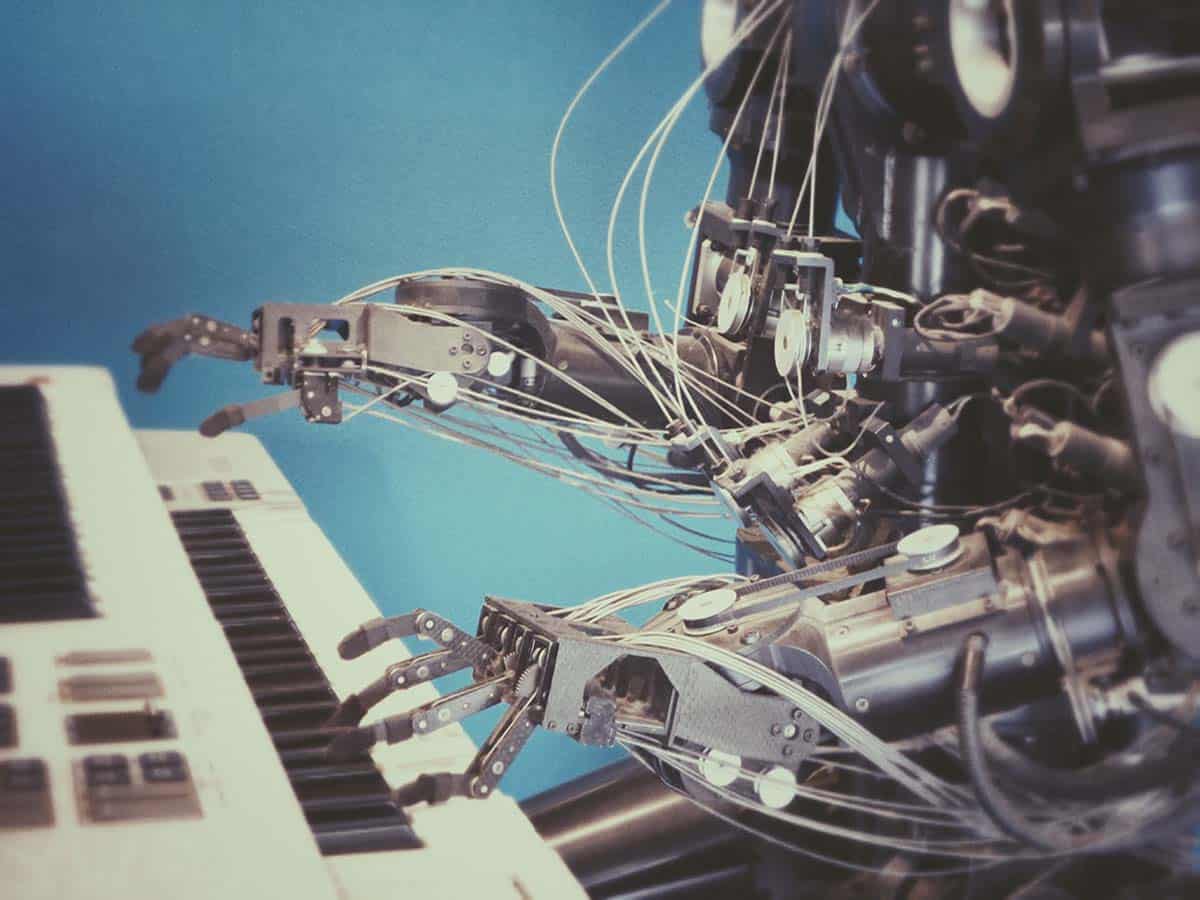
Advanced digital technologies and automation are eliminating the need for workers in many jobs. Are we heading towards an uncertain future characterized by stagnant income, dismal job opportunities, and worsening inequalities?
In 1990, Chrysler, Ford, and GM’s revenue combined was US$36 billion. But all three had over a million employees. Today, Google, Apple, and Facebook’s revenue is over one trillion dollars. Nevertheless, they have only 209,364 workers combined.
So, in essence, GDP and productivity increased. The only major thing that’s not growing the way it should is jobs.
Now, how is technology making more people jobless? Continue reading to know my take on this subject!
Technological Unemployment – A Concept Gradually Unfolding Before Our Eyes
Many scholars have debunked claims that technology is destroying jobs. They believe reverse would be the case. Most of them have tried to compare the advent of computers to this present situation. They believe that since computers didn’t take away jobs, but created more opportunities. Then robots, AI, and automation will do the same thing.
Advancement in technology is increased productivity. Revenue generated by Google, Facebook, and Apple is clear evidence. Another thing that is supposed to grow equally with productivity is jobs. But the reverse has been the case.
Truth is technological unemployment is real and unfolding before our very eyes. Countries like the USA and Japan are already feeling the impact. And it’s only a matter of time before it becomes massive and creates a huge concern for the government.
No one can deny that advancement in technology has made life more enjoyable. Technology made communication much easier. One can chat up a distant relative on social media, video call, and upload pictures online. Also, technology made it easier to order items online from the comfort of one’s home and deliver it to their doorsteps. There are also more educational tech gadgets these days for students.
Sadly, jobs are reducing! Many companies are already channeling their resources towards building machines and systems to automate some of their jobs. So, it’s only a matter of time before the time-bomb called technological unemployment explodes and becomes challenging to manage.
First and foremost, what does technological unemployment mean? It refers to job loss due to changes in technology. Numerous scholars have spoken about this happening in the future and what the implication would be. Should we ignore their warnings and continue believing that technology will generate more jobs than it would destroy?
Wendell Wallach, a scholar, consultant, and ethicist at the prestigious Yale University Interdisciplinary Center for Bioethics, spoke about the dangers posed by technology. He has been active on this topic for some time now. The 74 years old scholar co-authored the book, “Moral Machines: teaching robots right from wrong.” So, he’s in a better position to talk about these things.
Wallach believes that humanity has gotten to the point where technology isn’t helping in job creation. He believes it is destroying more jobs than it can ever create. He also foresees a serious crisis happening if this problem isn’t resolved.
For the past 200 years or so, the idea that technology will destroy more jobs than it would ever create was viewed as a fallacy. However, that software, automation, and robots can compete for human jobs should be understandable to anyone who has worked as a travel agent or in the automotive manufacturing sector.
Don’t believe that technological unemployment is real? Think about the huge number of employees that Chrysler, GM, and Ford had years back. Do Facebook, Google, and Apple have such a huge amount of employees? The answer is no! So, what’s stopping them from hiring more people? Technology! We obviously can’t say funds because these companies are making a lot of money.
So, robots, 3D printing, Artificial Intelligence, and other tech advancements are destroying jobs. They are reducing the need for people and causing global wealth disparity, which can create civil unrest, according to Wallach.
Technological Unemployment – Can It Be Reversed?
Yes, it can! That’s the short answer. Now ask yourself, are those in power doing enough to mitigate it? Your guess is as good as mine! Again, people need to come to terms with the fact that technology will do more harm to those in the workforce than good. Therefore, we need to put aside the idea that technology will help to create more jobs for us and put our voices together to fight the problem.
The simple truth is technology is advancing at an incredibly higher speed. And, with no regulation or oversight, the possibility of workers losing their jobs to new tech is high. According to Wendell Wallach, when this happens, wage stagnation in the United States and other parts of the globe will rise.
Note: In Wallach’s book, “Moral Machine: Teaching Robots Right from Wrong,” the author and scholar pointed out that, ideally, factors like productivity, hourly wages, income, and jobs grow together. But while GDP and productivity have increased in the last couple of decades, employment flatted, and US media income stopped. These made Wallach conclude that technology is responsible.
However, Wendell Wallach isn’t the only scholar who understands how technology is destroying jobs. Eric Brynjolfsson, a renowned professor at the MIT Sloan School of Management and co-author Andrew McAfee, shares the same view. Both have been arguing for the last couple of years that advances in computer technology, such as automation and advanced industrial robotics, are the reasons for the sluggish growth in employment witnessed in the last 10 to 15 years.
The MIT academics are also of the opinion that job loss will extend beyond manufacturing, retail, and clerical professions. They fear that new technologies will be powerful enough to replace workers in professions like medicine, law, education, and even financial services.
The Dangers Of Technological Unemployment
Experts have predicted a massive change in the US labor market 10 to 20 years from now. In a 2013 study conducted by Oxford University, 47 percent of jobs in the United States of America will be computerized. Once this happens, many people will be out of a job!
The truth is you can’t have such a large number of jobless people in a country and expect it to be peaceful. There would be social unrest or massive revolutions.
Anyone who has a family to support needs a job. He or she won’t be able to pay the bills without a job or source of income. The companies that automate productions might be comfortable with their effort, as long as it improves productivity and lowers costs.
But the increased productivity or low-cost production won’t mean much when there is civil unrest or revolution. It will be difficult for any company to operate in a country or region where there’s no peace or stability.
So, what can be done to avert this crisis? First and foremost, we need to agree that something can be done, though it has to start from the top. Those in power need to understand that there’s a problem and think of a better way to address it.
According to Wendell Wallach, being able to fix wealth distribution can help. So, the government can start with that.
How The Government Can Help Avert Crisis Relating To Technological Unemployment
Atkinson and Wu noted in a report that those in power need to find courage. They need to be prepared to cushion the effect technological unemployment may likely create.
If automation is going to cause job loss, the legislators need to be fully ready to decide the best policy to arrest the disruption. Besides Atkinson and Wu, Bill gate is another prominent personality that has suggested how the government can handle the situation. Others include Alan Barber and Gerlind Wisskirchen.
Bill Gates wants the government to impose taxes on robots, while Alan Barber believes that the adoption of work-sharing initiates will be helpful. Gerlind Wisskirchen suggested individual quotas that would eliminate the need to automate specific jobs. An example includes daycare workers.
Furthermore, people need to learn an employable skill that will be relevant in the future. New jobs that will be available when technology destroys the existing ones would need them. The best way the government can prepare citizens to cushion the effect of technologically-induced job loss is to introduce educational training programs. These programs should be designed to equip participants with skills most jobs will require in the coming years.
Again, successive governments need to factor this educational training program into their plans. They should also make an effort to improve funding. The program should be expanded to cover more people to raise the number of skilled people that will be ready for the changes.
Another way government can mitigate the effect of technologically-induced job loss is setting aside funds to cater to the needs of those who are unemployed. An example of such a program organized in some countries is UBI (Universal Basic Income).
The government of Finland and Canada are already looking into how effective UBI would be. However, it’s just a concept in the United States of America. The UBI is set up to provide newly unemployed workers with a means to survive.
Jobs That Technology May Destroy Faster
There is no doubt that technology will change the face of employment. It is going to disrupt the workforce massively a few years from now. Nevertheless, not all jobs will be affected. So far, several studies suggest that specific jobs have a higher chance of being substituted by technology. Let’s take a look at them.
1. Accounting Jobs.
With all the professional qualifications and training, no human can match a computerized device in accounting and financing. These devices can deliver results much quicker. Their work is errors-free, compared to an accountant.
The impact of technology is evident in accounting jobs. Thus, it’s only a matter of time before the need for people completely ends. That means those who have spent years studying accounting may have to consider learning a different employable skill.
Many companies have automated their accounting and financing systems for tracking and monitoring receivables and payables, thus, eliminating the need for people. If you are an accountant, know that your job could disappear a few years from now.
2. Retail workers
Retail workers have a higher chance of being replaced by technology. Stores might no longer need their services due to a massive change in customer behavior and advanced features that improve the online shopping experience for customers.
People now prefer to shop online than going to a store in person. Why? It is more convenient and less time-consuming. You can search for products, place orders, and have the items delivered to your doorsteps. Thus, in a few years, don’t be surprised to find retail jobs disappear.
3. Proofreading and editing jobs
Writing isn’t going to be that easy to automate. But we cannot say the same thing for proofreading jobs. The steady rise in editing and proofreading tools suggests that the profession could disappear in no distant time.
These proofreading and editing tools can fix grammar errors, spelling mistakes, passive voices, suggest words to use, and even fix sentence structure. So, they have become more and more advanced and could do the job better than humans. Errors skipped during manual editing can be picked up by a proofreading or editing tool and fixed. Grammarly is an excellent example of robust proofreading and editing application.
4. Courier jobs
Courier and delivery services are another set of jobs technology will replace in the future. We will have drones and robotics devices doing the deliveries, instead of humans.
The use of drones and robotic devices had already started. In the COVID-19 pandemic, several logistics startups developed drones to help deliver sick patients’ test results, and more! Today, self-driving cars are getting prepared to hit the road. So, it is only a matter of time before courier jobs disappear.
Note, for those in search of work, open independent courier is possible to view on the website Jooble.
5. Medical diagnostician jobs
Medical diagnosticians may also lose their jobs to artificial intelligence. We are already witnessing that happening across the globe. AI can identify the potential risk of heart attack or cancer via X-rays. They have proven times without number, to be better equipped than humans in spotting critical medical conditions. Thus, it is only a matter of time before we would witness a widespread application of this tech in the identification of diseases in humans.
6. Taxi driving jobs
Technology will also kick taxi drivers out of jobs. The world is already preparing for that. In the past, self-driving cars were mere fiction, but not anymore. They are real, and it’s only a matter of time before these cars hit our roads in their numbers.
7. Security guard jobs
Security is one area technology has truly advanced. Thus, individuals in this sector may start packing their bags already. Facial recognition and robotic guards are just some of those advancements. But who knows, we might have something more sophisticated in the future.
8. Book-keeping clerk
We already have robots and AI-powered devices that can do the work of a book-keeping clerk. And this automation has drastically reduced the need for a book-keeping clerk.
There are myriads of applications and tools that can get book-keeping jobs done in record time. Examples include Microsoft Office and QuickBooks.
9. Advertising salesperson job
Many companies are now taking their marketing campaigns to social media and online platforms. They are gradually moving away from TV and print media. Facebook currently has over 2.6 billion users. So there is a massive opportunity for businesses to reach their targeted audience on the platform. Companies are also opting for explainer videos and business ads. Thus, the need for advertising salespeople is diminishing.
10. Construction workers
It has already started happening in Japan. Construction workers are being replaced with robots. The Institute of Advanced Industrial Science and Technology in Japan successfully built a prototype humanoid, which can completely replace human laborers.
It will surprise you to know that this robot can do everything required of a construction worker. It can even lift loads that humans can’t.
11. Agricultural jobs
Agricultural jobs are also under serious threat. Farm robots are being deployed to take over from humans. We have seen many smart machines built to automate specific agricultural processes. A good example is the cow milking machine, which makes it possible for cows to milk themselves.
Conclusion
Technology is gradually destroying jobs. Several professions have disappeared with many others on the line. Robots, AI, and automation have been able to boost GDP and productivity. Yet, job growth isn’t encouraging. So, technological unemployment is real. It is also evident that technology cannot create more jobs than it would destroy.
A wise step the government can take is to enact laws that will mitigate technology’s deployment to do specific jobs. People should also learn other employable skills to be ready for new opportunities that will unfold when technology takes them out of their old jobs.
You May Like These Articles As Well:








